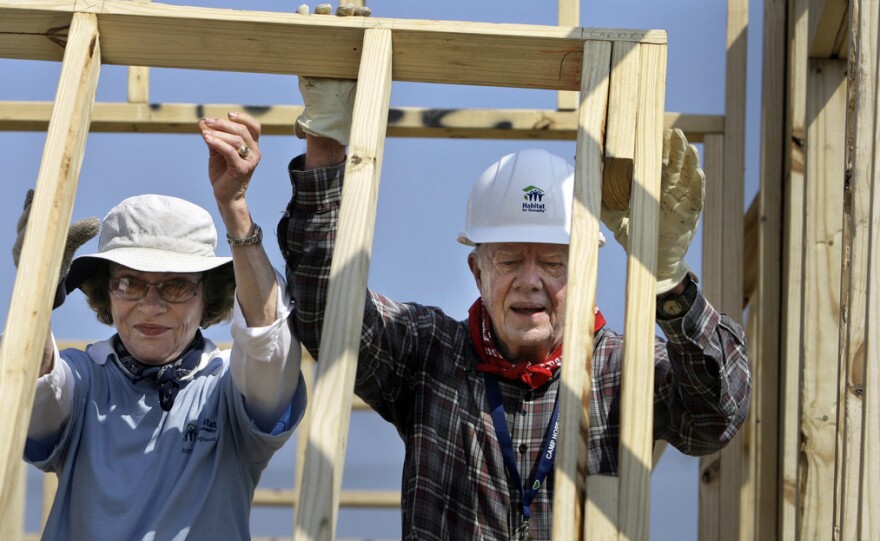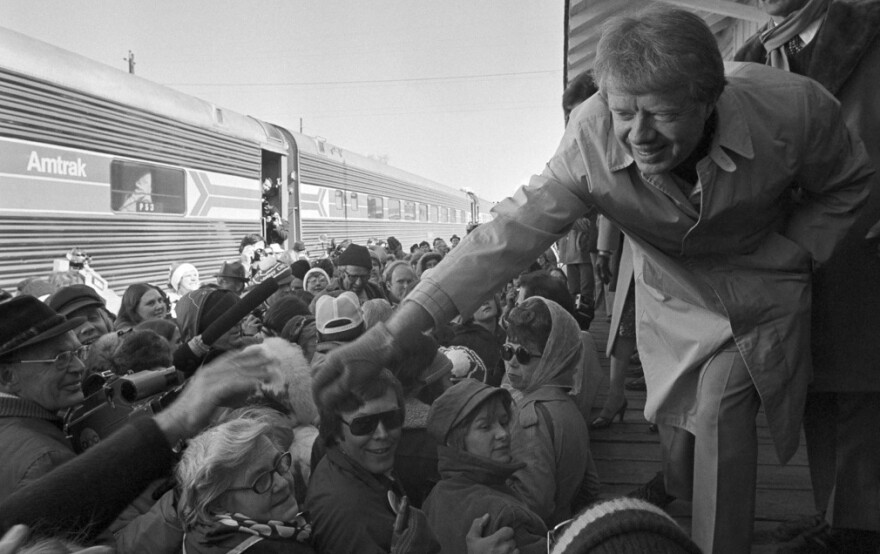BETHLEHEM, Pa. — As Jimmy Carter's presidential inauguration approached in January 1977, Neil Neamand knew about the swirling rumors.
Still, the Vietnam War draft resister remembered being overjoyed when Carter pardoned more than 200,000 people on his first full day of office for evading the draft.
Neamand, a Lehigh University alumnus, acknowledged Monday that Carter struggled throughout his tenure in the Oval Office, misreading the public's mood as he proved unable to solve stagflation or end the Iranian hostage crisis until the end of his term.
But he remembered Carter, who died Sunday at 100, as an ethical man dedicated to service and his country who showed his convictions from day one.
"Jimmy Carter was one of the most honorable and respectable people to ever serve in the White House," said Neamand, 82, of Lower Saucon Township. "Considering what we have now, he was an absolute saint."
Carter's legacy
Neamand's reflections matched the general consensus on Carter — a 2021 C-Span survey of historians graded Carter as a below-average president. The former Georgia governor, Navy lieutenant and peanut farmer wielded his outsider status to take the White House in 1976 in the aftermath of the Watergate scandal.
Once in the Oval Office, however, he was often cast by the media and opponents as a country rube who wasn't up for the challenges of leading a divided nation.
But Carter — the man and humanitarian — was hailed for his contributions to the world as a private citizen.
His nonprofit Carter Center worked to eradicate diseases in impoverished nations and bolster democracy around the globe. Domestically, he volunteered with Habitat for Humanity to construct affordable housing for working families; he worked on thousands of construction sites well into his 90s.

To date, Carter is the only president to receive a Nobel Peace Prize for work after his presidency.
"I think Carter is fortunate he lived such a long, long life and was so active in his post-presidential years. I think he would otherwise face being a footnote of history," said U.S. Rep. Susan Wild, D-Lehigh Valley, who volunteered for Carter's first presidential campaign as a teenager.
Wild said she could not help but see similarities between Carter, whom she briefly met as a young adult, and President Joe Biden.
Both, she said, struggled to connect with Americans as inflation sent prices climbing and violence erupted in the Middle East.
After the Oval Office
The big difference, she said, is that Carter had 43 years following his administration to build his legacy. At 82 years old, she doubted Biden would get the same opportunity.
"To succeed in the job, politically and in popular opinion, I do think you have to have some degree of ruthlessness that I doubt Jimmy Carter had," Wild said.
But Carter doesn't get the credit that he deserves for his foreign affairs policy, Wild said.
Carter was largely out-of-step with today's mainstream American policy toward Israel; he said Israel's handling of Gaza was worse than apartheid in South Africa. But at the same time, he negotiated the Camp David Accords, which improved relations between Egypt and Israel and changed power dynamics in the region.
Carter, who spent most of his life in his hometown of Plains, Georgia, had few ties to the Lehigh Valley. He made campaign appearances in Bethlehem and Allentown. His chief of staff, Hamilton Jordan, married Dorothy Henry at Muhlenberg College in 1981; Henry is an alumna.

Carter in Easton
In 2013, Carter gave a lecture at Lafayette College — the alma mater of his international policy adviser Robert Pastor. Pastor helped negotiate the Panama Canal treaties that eventually turned the waterway over to Panamanians and then helped the Carter Center promote democratic values in South America after his service.
On that day, Carter acknowledged the United States as a great nation but challenged students to create a greater one. The U.S. helped draft internationally recognized human rights following World War II but often violates those guidelines in the modern day, he said, pointing to drone assassinations in foreign countries and the detention of suspected terrorists without trial.
"I would like for our country in the future to have a reputation as a champion of peace. I think that’s one of the characteristics of the superpower," Carter said.


